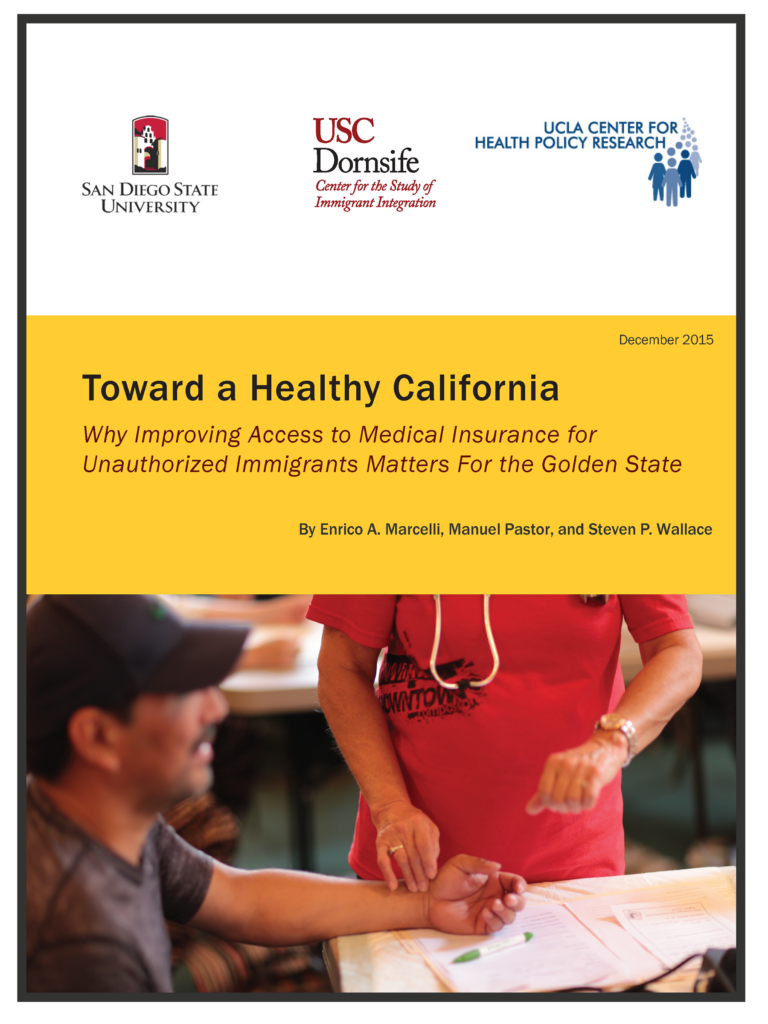
December 2015
By Enrico A. Marcelli, Manuel Pastor, and Steven P. Wallace
Please note: reports dated earlier than June 2020 were published under our previous names: the USC Program for Environmental and Regional Equity (PERE) or the USC Center for the Study of Immigrant Integration (CSII).
The Affordable Care Act has had dramatic impacts on reducing the numbers of uninsured Americans. However, it explicitly left out one important segment of the population with a noticeable lack of access to health insurance and medical care: unauthorized immigrants.
While the politics of that decision were understandable, the consequences are problematic in states like California where an important share of the population (roughly seven percent) is undocumented and where an even larger share of children (nearly a fifth) have at least one undocumented parent.
Insurance matters, although the connection to health is sometimes tenuous and unclear. Still, most Americans would rather be with than without—and one clear connection that does promote individual well-being is the way in which medical insurance helps to reduce financial risk and stress.
The benefits also seem to accrue beyond the individual: there are broad public health benefits to having more people covered and the current undocumented population, which is often younger and healthier, could actually help improve risk in insurance pools.
While this makes access to health insurance an important issue for everyone in California, it is particularly important to a series of fourteen communities being supported by The California Endowment (TCE) under its “Building Healthy Communities” (BHC) program. These areas have significant undocumented populations that report very low rates of insurance coverage. When insurance is spotty, communities are forced to rely on a patchwork of county-level services aimed at providing indigent care as well as various philanthropic efforts seeking to expand the safety net.
Fortunately, the state seems to be recognizing that it needs to do better: recently passed legislation provides access to Medi-Cal for undocumented children in the state. This is creating a template for expansion to adults as well for potentially creating opportunities to buy health insurance in a market akin to that created by the state’s insurance exchange, Covered California.
Research suggests that expanding access to medical insurance could be a gain for the future of the state. But getting there requires not just facts but vision, values, and strategies. The fourteen BHC communities are working with others in a campaign called “Health4All” to try to build public will and remedy the gaps.
We suggest that the Golden State’s decision makers would do well to listen to their arguments: since mass deportation is unlikely and comprehensive immigration reform seems inevitable (even if distant), the real choice facing the state is whether or not we provide the right policies and programs for a healthy California.



